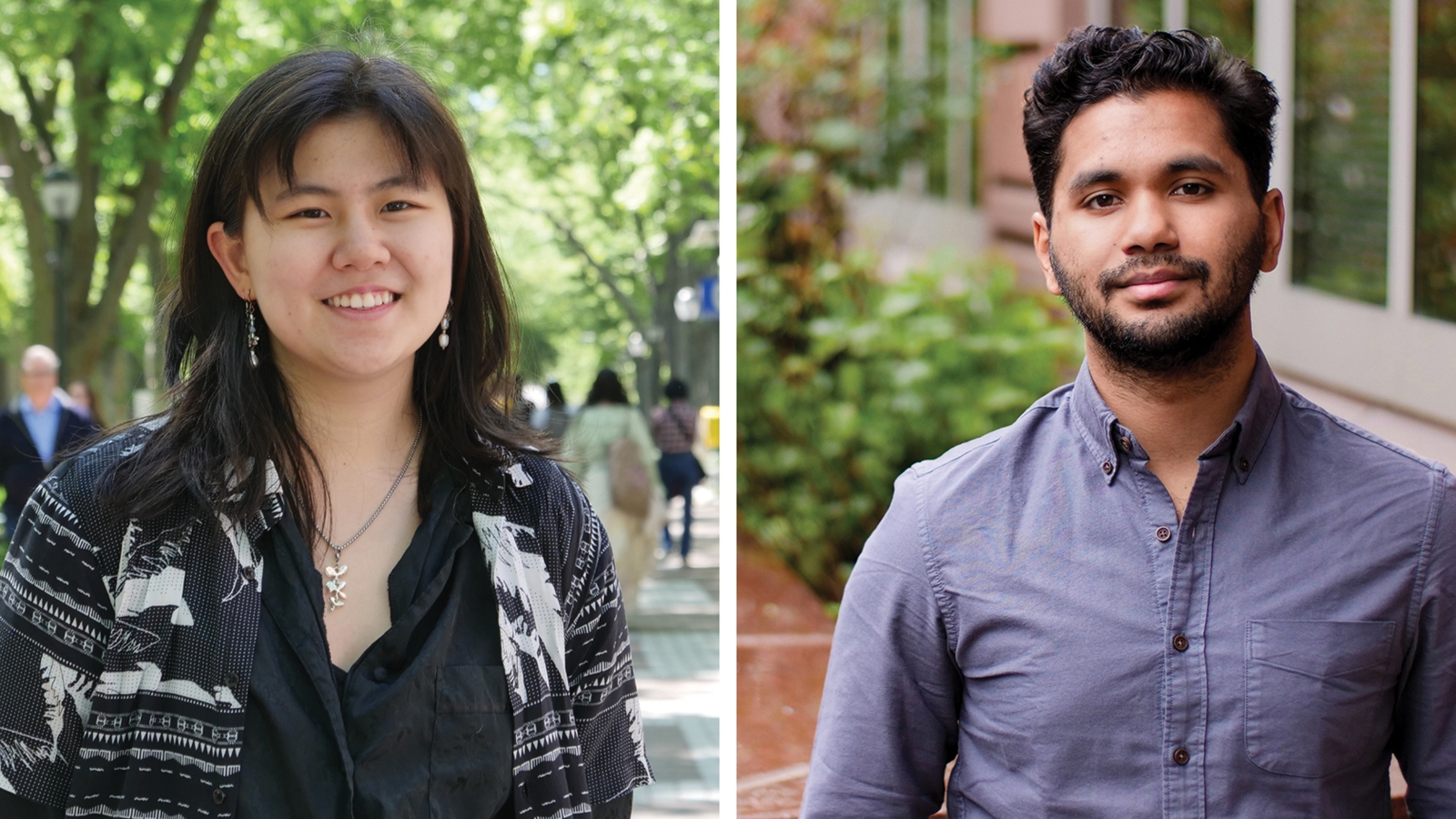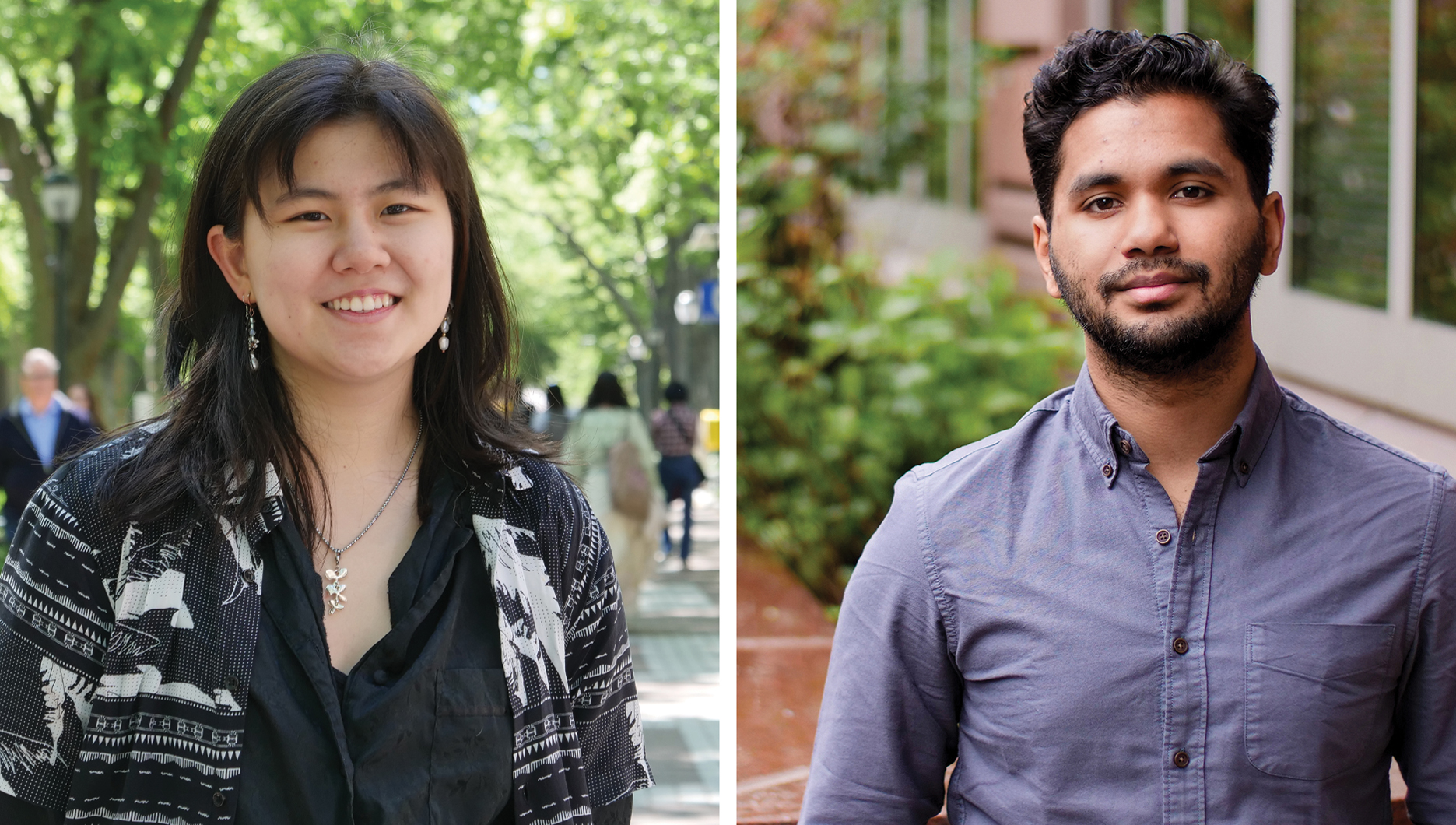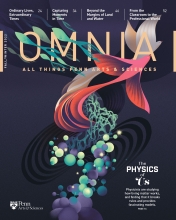A Time to Explore
The Penn Arts & Sciences Pathways video series highlights the intellectual journeys of undergraduates.

Isabel Hu, C’23, is a firm believer in following one’s passion. After deciding that a career in medicine was not for her, she leaned into her love for art and became a design major.
Hu was interviewed recently for Pathways, a Penn Arts & Sciences video series in which students reflect on their academic journeys in the College, including courses, faculty, or insights that have shaped or changed their undergraduate experience.
“I came to Penn for visual studies,” she says. “It was a good compromise between my parents and me. They wanted me to go into the medical field and I love art so much—it’s such a huge passion of mine. Visual Studies combines biology, neurology, art history—everything, and I was so psyched for that.”
Hu is also into fashion, tattooing, and skateboarding. She participates in the Wharton Undergraduate Entrepreneurship Club as a graphic designer and plays on the Penn rugby team.
A course in hand-drawn animation was especially impactful. “I was able to really bring my artwork to life,” Hu says. She adds that being at Penn and in Philadelphia has given her the opportunity to explore her identity.
After graduating next spring, Hu plans to become a professional tattoo artist. “I know that coming to Penn and becoming a tattoo artist is not the most conventional career path,” she says, “but tattooing really speaks to me.”
Another recent Pathways video focused on Ayan Bhattacharjee, C’23, G’23. A chemistry major who is also enrolled in the M.S. Chemistry program, Bhattacharjee is an accomplished musician, having played clarinet for eight years. He was a member of the Penn Symphony Orchestra, participated in the Music and Social Change program, and has taught piano through the Platt Performing Arts Houses After School Arts Program.
“When I started school, I was pretty insistent on being pre-med and becoming a physician,” he says. He liked chemistry, but at first saw those classes as a way to learn what he needed to become a physician. Things changed when he took a class called Theory of Probability.
“I gained a greater appreciation of the material by going deeper and understanding, just continuously asking, ‘why?’” Bhattacharjee says. “That led me to believe that a career in research, where I would be asking more of those questions, was the right fit for me.”
Coming to Penn has allowed Bhattacharjee to become more independent and to pursue teaching and research. He now sees different possibilities for his future. “There are different ways to be a scientist or a physician,” he says. “You can be as ambitious as possible and shoot for the top, but there’s also a way of maximizing how many people you talk to and how many people you can be kind to, and how much compassion you can show. At Penn I’ve come to adopt more of the second mindset.”




